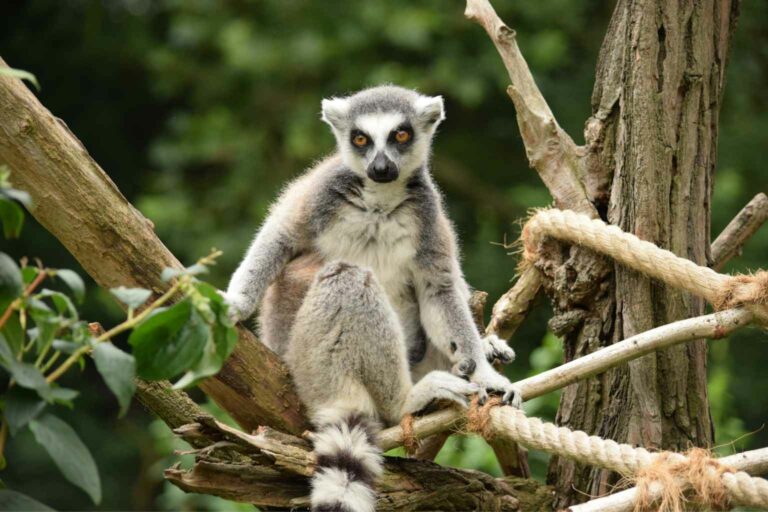
Biodiversity in Business: Intro
In today’s world, biodiversity is not just about environmental conservation. It offers tremendous benefits to businesses, including brand reputation, innovation, and long-term sustainability. By valuing and preserving the diversity of life on Earth, companies can unlock unique growth opportunities and gain a competitive edge.
Embracing biodiversity means understanding how ecosystems are interconnected and the vital services they provide, such as clean air, water, and climate regulation. This holistic approach builds resilience, mitigates risks, and guides responsible decision-making.
In this article, we explore the power of biodiversity in your business strategy and provide practical steps to integrate it into your operations. Join us on this journey towards a sustainable future for your business and the environment. Read on to discover the true potential of biodiversity in business.

Biodiversity in Business: Investment is Going Green
Just as companies have addressed climate change risks, the urgency to understand and mitigate biodiversity risks is growing. Investors are redirecting their funds towards nature-positive businesses that minimise adverse impacts, in line with new and upcoming biodiversity regulations.
Businesses should anticipate stricter rules on land use, subsidy reforms, taxes, science-based targets, and trade directives around the world. In Europe, France has enacted laws for biodiversity reclamation As well as this, the European Parliament is working on nature directives and mandatory due diligence.
Countries like Indonesia and Costa Rica have also taken measures to protect their ecosystems. Furthermore, Australia is reassessing its Environment Protection and Biodiversity Conservation Act.
The green investment revolution is underway.
Biodiversity in Business: Biodiversity Loss Impacts Profit
Over half of the global GDP is directly linked to nature, as highlighted by the World Economic Forum. A study by the United Nations reveals that many sectors heavily rely on natural resources for their production processes.
This dependence means that one in every five companies faces potential operational threats due to ecosystem degradation. Businesses relying on nature for resources like water, pollination, or fertile soils can suffer financial consequences from disruptions.
Moreover, activities that harm nature can result in reputational damage and financial losses. Stakeholders now expect companies to manage their biodiversity impact responsibly.
Biodiversity in Business: Biodiversity Loss Links to Climate Change
Biodiversity and climate change are closely intertwined. Forests, mangroves, marshes, and coral reefs act as carbon sinks and offer nature-based solutions against coastal erosion and flooding.
Biodiversity varies across locations, and it’s crucial to identify areas under high or extreme stress.
It’s not just pristine rainforests that matter; urban landscapes also play a vital role in biodiversity conservation.
Similar to climate change, biodiversity risks have common characteristics, including extensive impact and tipping points. Physical risks damage assets and vital ecosystem services.
Transition risks arise from policy, legal, and technological changes. Disruption risks occur when nature loss affects societies and markets.
The Taskforce on Nature-Related Financial Disclosures has produced a framework to help organisations report on nature-related risks.

Did you know that every Play It Green member contribute to repairing damaged forests, mangroves and marshes at four locations in Madagascar?
Biodiversity in Business: Doing it Well
Considering biodiversity in business brings numerous benefits. In residential developments, preserving biodiversity not only reduces risks but also enhances property valuations.
Increased tree cover reduces urban heat and combats the impacts of climate change. Similarly, companies relying on rivers can make financial decisions that protect water resources by investing in surrounding biodiversity.
This benefits local communities, agriculture, and ecosystems. Biodiversity considerations extend beyond rural areas to towns and cities.
Collaboration among local governments, town planners, and developers is crucial to integrating nature-related opportunities into strategic planning and risk management.
Whilst taking your impact into account and making plans to reduce it, reforestation in the right places can help your business increase its positive impact and repair lost ecosystems.
That’s a Wrap
Incorporating biodiversity in business strategies is essential for long-term success and sustainability. The power of biodiversity extends beyond rural areas, influencing urban landscapes and urban development. By valuing and investing in nature, businesses can enhance their resilience, improve valuations, and ensure the availability of vital resources.
Furthermore, considering biodiversity fosters positive impacts on local communities, agricultural productivity, and entire ecosystems. It is crucial for businesses to collaborate with local governments, town planners, and developers to integrate biodiversity into strategic planning and risk management.
Embracing biodiversity in business unlocks opportunities, safeguards against risks, and contributes to a thriving and nature-positive future. Play It Green is proud to help its members seize the power of biodiversity in their business strategy.
If you’re passionate about sustainability, transparency and positive impact. If you want to take your efforts to the next level. Then we encourage you to join the Play It Green community.
For just £5 per month, you’ll have access to a supportive network of like-minded individuals and resources to help you make even more sustainable choices in your daily and working life.
As well as that you will plant lots of trees and regift to a charity of your choice.
Together, we can create a brighter and more sustainable future for all.





